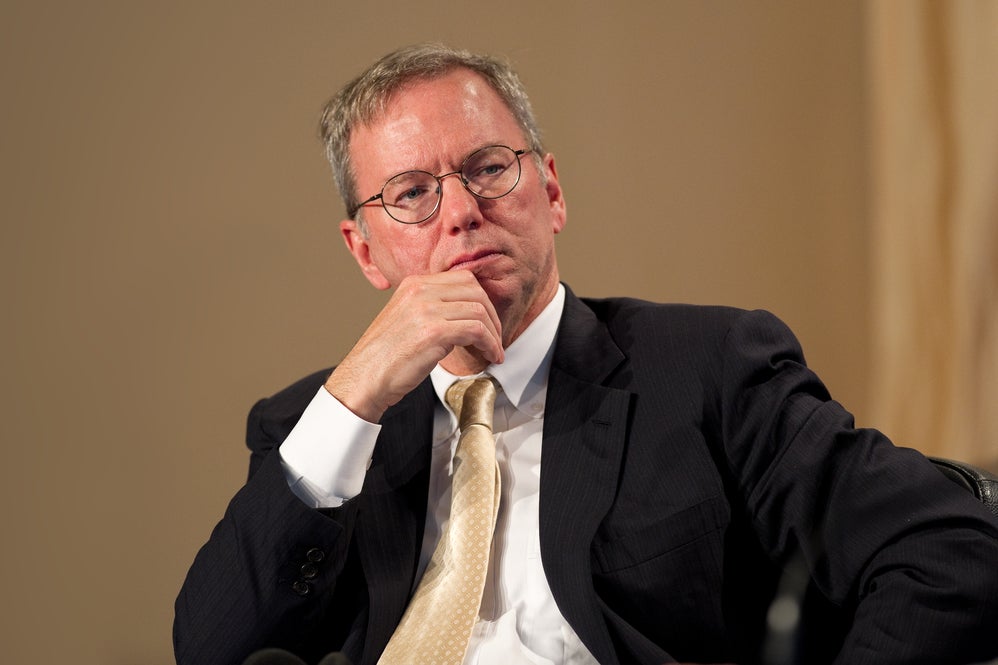Former Alphabet Inc GOOG GOOGL CEO Eric Schmidt joined the chorus of growing concerns over the potential “existential risk” of artificial intelligence and the need for governments to address its responsible use and regulation.
What Happened: Schmidt issued a stark warning about the potential risks posed by AI during The Wall Street Journal’s CEO Council Summit in London. He said AI could become an “existential risk” and emphasized the need for governments to understand how to prevent its misuse by malevolent individuals.
“Existential risk is defined as many, many, many, many people harmed or killed,” Schmidt said.
See Also: How To Use ChatGPT On Mobile Like A Pro
Schmidt, who was CEO of Google from 2001 to 2011, stressed the importance of being prepared to ensure that evil actors do not abuse AI technology.
“There are scenarios, not today, but reasonably soon, where these systems will be able to find zero-day exploits in cyber issues or discover new kinds of biology. Now, this is fiction today, but its reasoning is likely to be true. And when that happens, we want to be ready to know how to make sure these things are not misused by evil people.”
He also acknowledged the need for AI regulation as a “broader question for society.”
Why It’s Important: Schmidt’s remarks echo the sentiments of other influential figures in the tech industry, including Elon Musk, Sam Altman, Geoffrey Hinton, also known as the “Godfather of AI,” and current Google CEO Sundar Pichai, who have all previously expressed concerns about the risks associated with unregulated AI development.
Renowned business magnate and investor Warren Buffett also expressed his doubts about OpenAI’s chatGPT and compared it with the invention of the atom bomb, saying that the possibility of the technology scares him.
In March, Musk, Apple co-founder Steve Wozniak and over 1000 others signed an “open letter” calling for a pause on training systems exceeding OpenAI’s GPT-4. However, at the time, Schmidt did not favor this proposal over concerns about China getting the upper hand.
In 2019, Schmidt became part of the National Security Commission on AI in the U.S. and contributed to a comprehensive evaluation of AI technology, including a prospective regulatory structure. The commission subsequently released its findings in 2021, raising concerns about the country’s lack of readiness for the advent of AI, according to CNBC.
Check out more of Benzinga’s Consumer Tech coverage by following this link.
Read Next: ‘You’ll Never Go To Amazon:’ Bill Gates Predicts AI Agents Will Replace Search And Shopping Websites
Image and article originally from www.benzinga.com. Read the original article here.

